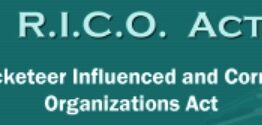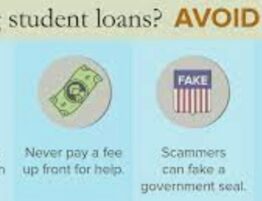Texas Law Has Fraudulent Transfer Liability When the Bankruptcy Code Doesn’t
The Fifth Circuit found fraudulent transfer liability under Texas law even though the same facts would give the transferee a complete defense under Section 548(c) of the Bankruptcy Code.
According to the January 9 opinion by Chief Circuit Judge Carl E. Stewart, the so-called futility exception to the good faith defense is not available under Texas law, although a defendant in an identical case under the Bankruptcy Code would have a valid defense under Section 548.
The appeal arose from the $7 billion Ponzi scheme orchestrated by R. Allen Stanford, now serving a 110-year prison sentence. The Securities and Exchange Commission initiated a receivership and tasked the receiver with bringing lawsuits to aid defrauded investors.
Under the Texas Uniform Fraudulent Transfer Act, or TUFTA, the receiver sued an investor who took out $79 in principal shortly before the fraud was exposed. The district court ruled that the investor was the recipient of a transfer made with actual intent to hinder, delay or defraud. The only issue was the investor’s good faith defense under TUFTA.
The defendant escapes liability under TUFTA by proving it received the property “in good faith and for reasonably equivalent value.” Good faith alone was at issue because repayment of the investor’s principal established reasonably equivalent value.
Related Stories
April 9, 2024
Title: The Alarming Rise of Identity Theft: A 2024 Perspective In recent years, the threat…
July 27, 2022
IRS Fresh Start Initiative Program, resolving IRS tax debts. Do You Need a Fresh Start…
June 9, 2022
IRS First Time Penalty Abatement – FTA The first-time penalty abatement (FTA) waiver is an…
March 26, 2022
If you filed a chapter 7 bankruptcy, look into filling IRS form 982 When you…
Posted in: Debt & Bankruptcy
March 26, 2022
DID SOMEONE FILE FOR UNEMPLOYMENT BENEFITS UNDER YOUR NAME? If you discover that someone has…
February 3, 2022
RICO suit, McKinsey In a decision last week, the Court of Appeals for the Second…
December 17, 2021
BEWARE OF USING MONEY FROM YOUR IRA OR 401(K) TO PAY DEBTS This can be…
Posted in: Debt & Bankruptcy
December 17, 2021
How to Spot Student Loan Scams. Things you can do to protect yourself. “Enroll now…
Posted in: Debt & Bankruptcy
April 9, 2024
Title: The Alarming Rise of Identity Theft: A 2024 Perspective In recent years, the threat…
July 27, 2022
IRS Fresh Start Initiative Program, resolving IRS tax debts. Do You Need a Fresh Start…
June 9, 2022
IRS First Time Penalty Abatement – FTA The first-time penalty abatement (FTA) waiver is an…
March 26, 2022
If you filed a chapter 7 bankruptcy, look into filling IRS form 982 When you…
Posted in: Debt & Bankruptcy
March 26, 2022
DID SOMEONE FILE FOR UNEMPLOYMENT BENEFITS UNDER YOUR NAME? If you discover that someone has…
February 3, 2022
RICO suit, McKinsey In a decision last week, the Court of Appeals for the Second…
December 17, 2021
BEWARE OF USING MONEY FROM YOUR IRA OR 401(K) TO PAY DEBTS This can be…
Posted in: Debt & Bankruptcy
December 17, 2021
How to Spot Student Loan Scams. Things you can do to protect yourself. “Enroll now…
Posted in: Debt & Bankruptcy








